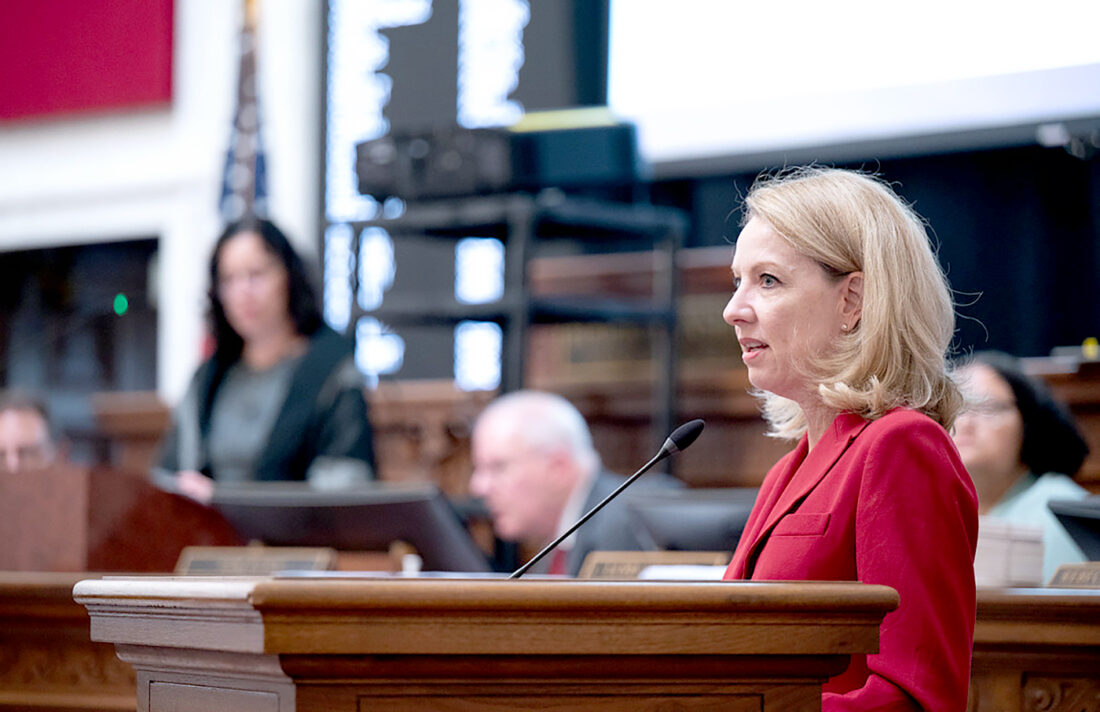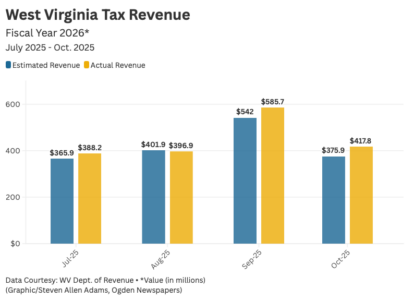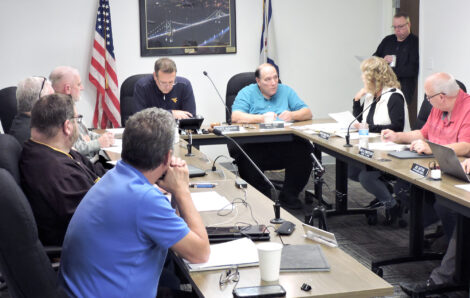W.Va. Ethics Commission promises to focus on mandatory lobbyist training

CHANGING POLICIES — Ethics Commission Executive Director Kimberly Weber told lawmakers Monday that the commission was changing its policies and procedures to ensure that registered lobbyists complete their mandatory ethics training. -- Photo Courtesy/WV Legislative Photography
CHARLESTON — A performance review of the West Virginia Ethics Commission conducted by legislative auditors revealed disparities between the commission’s enforcement of lobbyist financial reporting and its oversight of mandatory ethics training.
A report released Monday by the Legislature’s Performance Evaluation and Research Division (PERD) found that while the commission demonstrated high effectiveness in ensuring lobbyists report their activities, the audit identified critical failures in the administration of ethics training requirements.
PERD randomly sampled the registration cycle training records and lobbying activity reports for 71 of the 217 lobbyists registered in the 2021-2022 registration cycle.
According to the report, the commission had a 97 percent enforcement rating for ensuring that lobbyists file their required reports on spending and other activities. State Code requires registered lobbyists to file with the commission a signed report of all of their lobbying activities three times a year.
Each report is supposed to show the total amount of expenditures and dates associated with lobbying activities by the following categories that include meals and beverages, contributions and gifts to public officials or employees or to members of the immediate family of public officials or employees. The commission is authorized to charge lobbyists a fee for each day the required report is late.
“Some lobbyists failed to report lobbying activities in one or two reporting cycles,” said PERD Research Manager Jill Mooney, during a meeting of the Joint Standing Committee on Government Organization Monday afternoon. “The commission did assess late fees to the lobbyists who filed late reports. The sampled data indicate that the commission’s management promotes compliance with the reporting requirements of the State Ethics Act.”
However, only 55 percent of sampled lobbyists had completed required ethics training during their two-year registration cycles.
Drilling down further, 17 percent of sampled lobbyists had completed their ethics training, but not during the appropriate registration cycle; and 21 percent of sampled lobbyists had no evidence they had completed training during the 2021-2022 registration cycle. Another 7 percent did not complete mandatory ethics training, but those lobbyists had either self-terminated their registration or the commission suspended their registration.
State Code requires that lobbyists have ethics training during each two-year registration cycle. The code also states that a lobbyist must attend training prior to engaging in lobbying activities. The commission allows first-time lobbyists to take initial ethics training before the start of lobbying but allows those lobbyists to complete their mandatory training anytime during the registration cycle.
According to the report, many of the sampled lobbyists who did complete their required mandatory training waited until nearly the end of their two-year cycle to complete that training.
“In total, 20 lobbyists did not complete ethics training during the 2021-22 registration cycle,” Mooney said. “PERD found that on average these 20 lobbyists had not completed an ethics training in more than three and a half years. Four of the lobbyists had a last ethics training date of between five and six years ago. Another five lobbyists went over four years without ethics training. The commission did not dispute that a lobbyist can go years without completing the ethics training.”
Kimberly Weber, the executive director of the Ethics Commission, said the commission largely agrees with the conclusions of the PERD report and that it was already working on enforcing compliance with ethics training requirements for lobbyists.
“I would like to assure you that today we have 403 registered lobbyists and each one of them is current on their training,” Weber said. “They have all had initial training and they have until January 11, 2027, to fulfill their recurring training, which is one hour of training in the two-year period.”
Weber said most of the issue comes down to timing and the constant influx of lobbyists registering or dropping out and re-registering at a later date. Some lobbyists cancel their registrations before the end of their registration period and miss the mandatory training.
“Some of the people that didn’t take training didn’t take the training because of the timing of how the law is written,” Weber said. “It is possible for those lobbyists to go through the two cycles and drop their registration or terminate the registration at any time during that two-year cycle and they have then not taken the training. And our policy is that when, if, and when they attempt to register for any subsequent cycle, that’s when they get caught up.”
Weber said the commission was re-drafting its policies and procedures to ensure lobbyists are caught up on their mandatory ethics trainings going forward.




